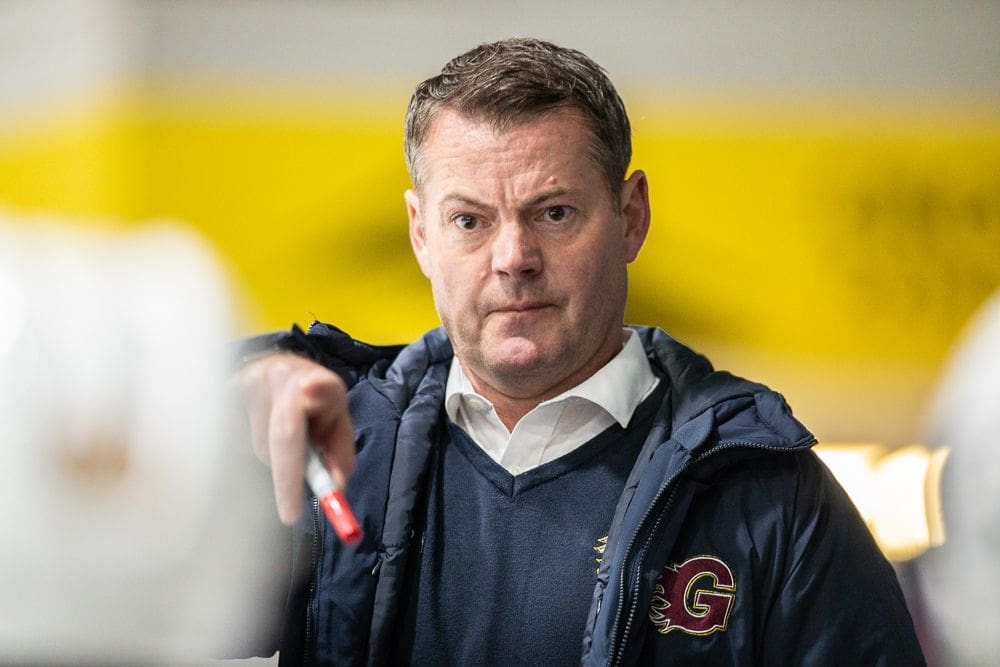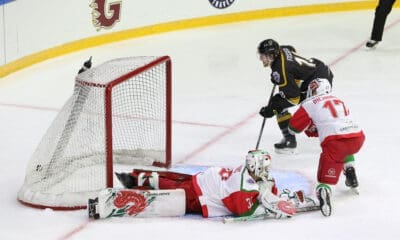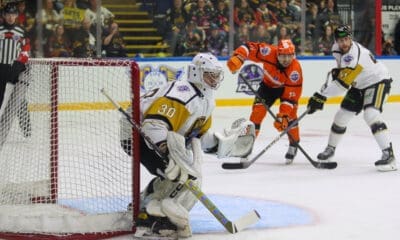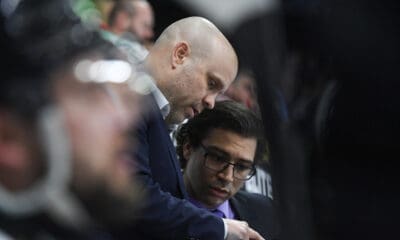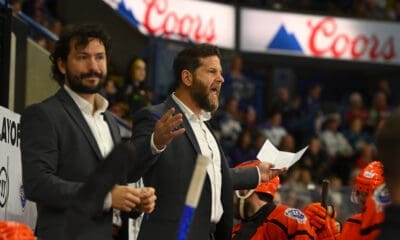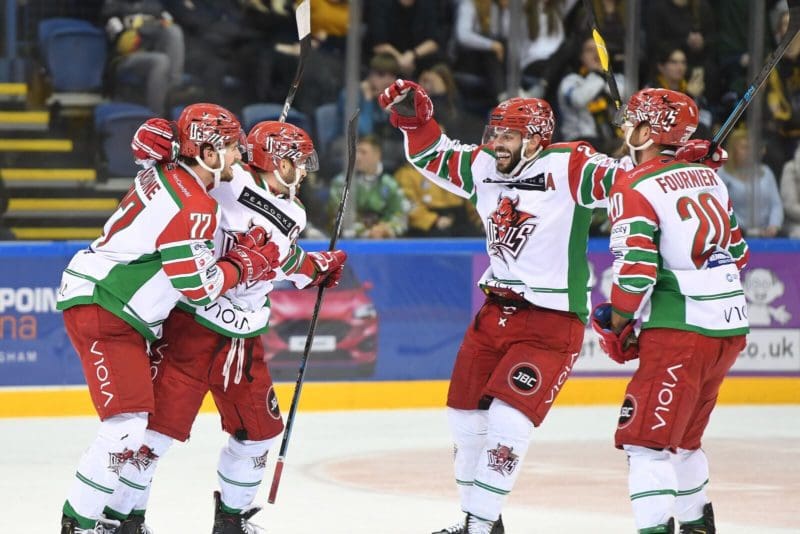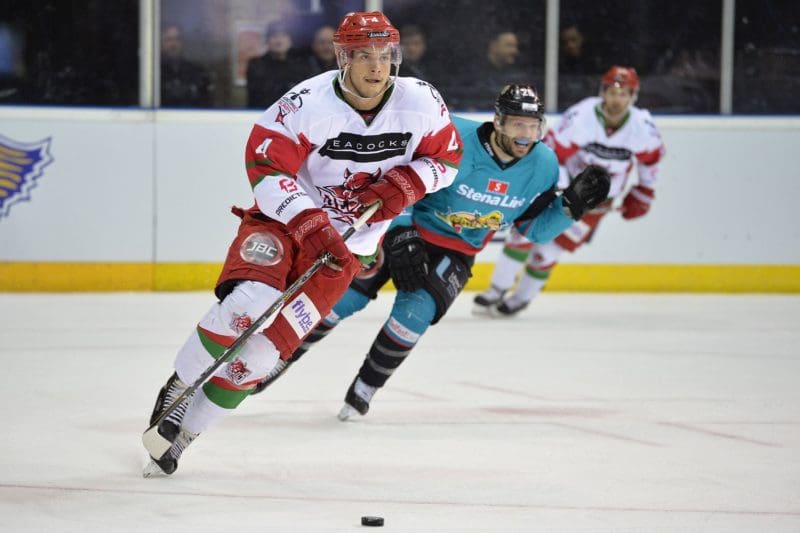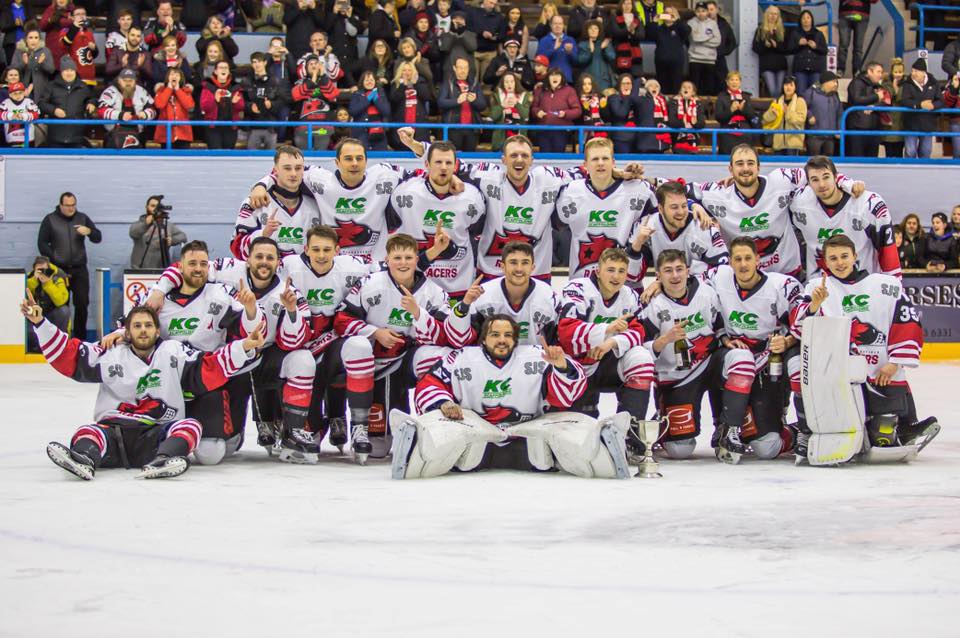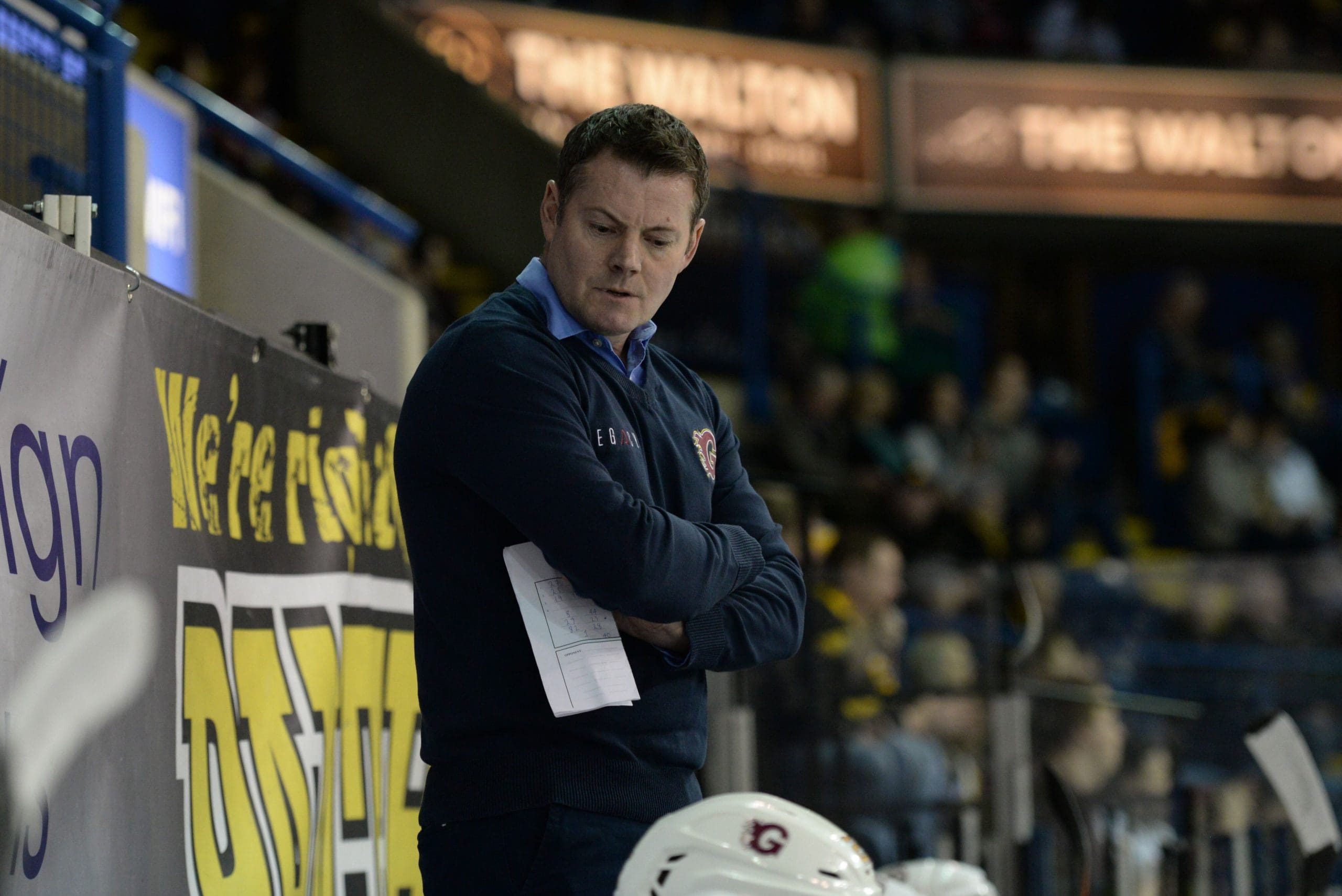
Paul Dixon’s Guildford Flames are flying high in the Elite League. In a recent interview with British Ice Hockey, the former defenceman spoke about player development, roster construction, and his club’s title prospects.
Here is the second part of a two-part series with Dixon, click here to read part one:
Guildford Flames’ Paul Dixon, Question & Answers
Question: You currently have four point-per-game forwards, how important is it to have players who can produce offence at that level?
Guildford, Paul Dixon: “It’s everything, isn’t it? To be honest, I would like nine forwards with those numbers but it’s certainly impressive what those guys have done.
“Again, it’s up to them: we put them on a platform with big minutes and power play time but they have to deliver those numbers. All we do is provide them with the opportunity: it doesn’t happen for them guys sometimes, but other times they come in and you benefit from guys who overachieve.”
Question: That said, you’ve also received really strong performances from the bottom-six…
Guildford, Paul Dixon: “You have to have a team. You can’t have a team of superstars [because] everyone has a different role to play. I can only speak very highly of my team this year because they have all bought into what we do. Whether they play ten or twenty minutes per night, they have all accepted the roles and I think that speaks to the success we’ve had so far this year.
“As a coach, all you can ask for is for the players to buy-in. If you don’t have buy-in, you won’t achieve your goals.”
Question: There is a long-running debate about player development in the Elite League – with the balance between development and winning often discussed. What do you make of it?
Guildford, Paul Dixon: “It’s a difficult topic. We’re always looking down the line to see who we can bring and develop from the homegrown side of it. It’s just very hard and this topic will probably go on forever.
“We’re always working with the younger guys and keeping an eye on the other leagues to see who we can get and who is doing well but, at the end of the day, this is a professional league with professional players in it and there is a pressure from clubs, owners, [and] everything to win. That’s for everybody.
“From the development side, the last thing we want to do is bring in a guy and not develop him by not playing him. It’s a very difficult thing to manage because you don’t want to bring someone in, sit them there, and then, all of a sudden, they haven’t played any games. You don’t want to do that because you want to bring them forward and not take them backwards.
“I don’t believe there is an answer now with the way the league is structured, but we keep looking at younger British players. It’s hard because a lot of them are playing in a lower league and work full-time. There’s a real [difficult] balance to attract players into the Elite League.”
Question: The Elite League also plays a role in developing imports, and I suppose that is part of the pitch given to those players during the recruitment process?
Guildford, Paul Dixon: “We recruit for this year’s team… [because] you can’t really forecast if a guy is going to do well and be picked up by another team. If that happens, it obviously makes the league stronger because of how it’s perceived.
“It’s positive that guys are coming to Elite League at 25 or 26 and not just ending their careers. They’re having good seasons, it’s good[-quality] hockey that’s getting better and improving its reputation across Europe, and [have the chance to] move into some of the so-called higher leagues. That’s where we are.”
Question: The Flames have never finished higher than fifth in the Elite League. It feels like that’s about to change…
Guildford, Paul Dixon: “That’s why we do it. That’s why we’re here and that’s what our goal was this summer. We have to be realistic with the teams that are in our league, and we are very realistic here, but we want to push them and finish as strong as we can. We’ll take it one game at a time and just make sure we win as many as we can.”
After Paul Dixon, who would you like British Ice Hockey to interview next? Join the discussion by tweeting @BritIceHockey.

